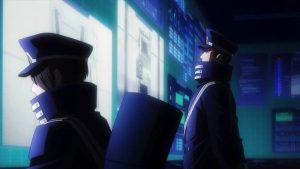 It’s probably not wrong to say Boku no Hero Academia is a victim of its own success. I think the series has suffered from being taken for granted a bit after being so good for so long, both in manga and anime form. And for whatever reason, it seems like fans who really love it also love to criticize it – much more so than with any shounen blockbuster I can remember, as it’s far more common for hardcore fans to circle the wagons and blindly defend (as is the case with Attack on Titan for the most part, for one). Why is that particularly true with HeroAca? Honestly, I have no idea, but I’ve seen far too much evidence of it to doubt its validity.
It’s probably not wrong to say Boku no Hero Academia is a victim of its own success. I think the series has suffered from being taken for granted a bit after being so good for so long, both in manga and anime form. And for whatever reason, it seems like fans who really love it also love to criticize it – much more so than with any shounen blockbuster I can remember, as it’s far more common for hardcore fans to circle the wagons and blindly defend (as is the case with Attack on Titan for the most part, for one). Why is that particularly true with HeroAca? Honestly, I have no idea, but I’ve seen far too much evidence of it to doubt its validity.
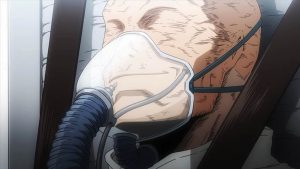 Has this been BnHA’s best season? No – but I think Horikoshi is in a can’t win situation given the size of his cast. When he fixates on the core characters he takes heat for ignoring the supporting cast. So what happens when he given them some oxygen, which is what much of the “Joint Training” arc is about? He gets heat when the stories focusing on the less compelling characters are – inevitably – less compelling. And for the most part those eps have been quite good in their own right, if not the series A game.
Has this been BnHA’s best season? No – but I think Horikoshi is in a can’t win situation given the size of his cast. When he fixates on the core characters he takes heat for ignoring the supporting cast. So what happens when he given them some oxygen, which is what much of the “Joint Training” arc is about? He gets heat when the stories focusing on the less compelling characters are – inevitably – less compelling. And for the most part those eps have been quite good in their own right, if not the series A game.
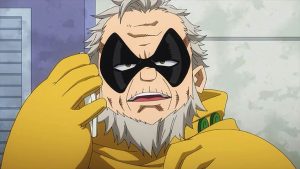 Of course it’s the A game we want. And this season has delivered it in spurts – the two episodes which have bookended it (not counting the opening recap), and the Iida-Todoroki battle in between. This week was that second bookend and was, for me, the clear best episode of the season (opening by quoting from “The Great Dictator” sets the tone). No question it was largely because of two factors – the stakes were raised well beyond the class battles, and Deku was finally back in the spotlight. The burdens he carries because of the secret he’s hiding are heavy. He can’t tell anyone about the cloud of uncertainty hanging over him as he enters the arena for the final match, but his confidence is clearly shaken. With good reason, as it turns out.
Of course it’s the A game we want. And this season has delivered it in spurts – the two episodes which have bookended it (not counting the opening recap), and the Iida-Todoroki battle in between. This week was that second bookend and was, for me, the clear best episode of the season (opening by quoting from “The Great Dictator” sets the tone). No question it was largely because of two factors – the stakes were raised well beyond the class battles, and Deku was finally back in the spotlight. The burdens he carries because of the secret he’s hiding are heavy. He can’t tell anyone about the cloud of uncertainty hanging over him as he enters the arena for the final match, but his confidence is clearly shaken. With good reason, as it turns out.
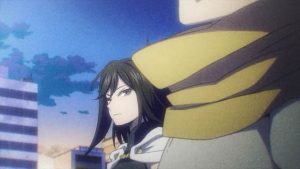 Class 1-B’s team is a pretty good one, and up a man as well. Kodai, Yanagi, and Shoda are all solid specialist types, effective as support pieces for their main weapons. Shinsu’s quirk is elite level on its own, and Monom’s is possibly close – but it’s when the two are combined that they become especially dangerous. The uncertainty of whether Monoma is using “Copy” on Shinsu’s brainwashing (he’s not as the match opens) forces Deku’s team to be extremely cautious. Deku’s support isn’t elite level, but neither was Kacchan’s and that didn’t stop him from steamrolling the opposition.
Class 1-B’s team is a pretty good one, and up a man as well. Kodai, Yanagi, and Shoda are all solid specialist types, effective as support pieces for their main weapons. Shinsu’s quirk is elite level on its own, and Monom’s is possibly close – but it’s when the two are combined that they become especially dangerous. The uncertainty of whether Monoma is using “Copy” on Shinsu’s brainwashing (he’s not as the match opens) forces Deku’s team to be extremely cautious. Deku’s support isn’t elite level, but neither was Kacchan’s and that didn’t stop him from steamrolling the opposition.
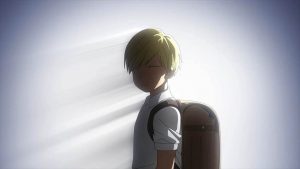 I think Izuku makes a mistake in basically rehashing Bakugo’s strategy for this match. 1-B certainly saw it coming and acted to counter. But soon enough all that becomes irrelevant as One For All goes out of control, leaving Izuku concerned only with not killing somebody. The has been brewing for a while, obviously. Gran Torino’s phone call to All Might offers only a cryptic stand of memory about Shimura – she had a dream where a voice told her “The time has not yet come”. This isn’t like those dreams of Deku’s, however. Once he loses control all he can do is scream at his opponents to flee for their lives.
I think Izuku makes a mistake in basically rehashing Bakugo’s strategy for this match. 1-B certainly saw it coming and acted to counter. But soon enough all that becomes irrelevant as One For All goes out of control, leaving Izuku concerned only with not killing somebody. The has been brewing for a while, obviously. Gran Torino’s phone call to All Might offers only a cryptic stand of memory about Shimura – she had a dream where a voice told her “The time has not yet come”. This isn’t like those dreams of Deku’s, however. Once he loses control all he can do is scream at his opponents to flee for their lives.
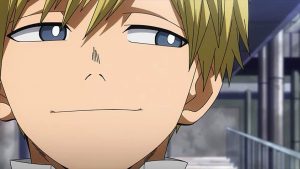 This is a reminder of how insignificant these matches are in the grand scheme of things, but HeroAca can’t ignore its own title – the training experience is and always has been the heart of the narrative. All Might senses what’s happening and begs Eraser to halt the proceedings, but before he can, Ochaco comes to Deku’s aid. Unable to calm him down (she doesn’t understand the nature of the problem, of course) she alertly seizes on the one way to save the situation – have Shinsu use “Brainwashing” on Deku. Deku still has enough of his wits about him to let himself be hit, and the impact is twofold. The turmoil subsides, and Deku goes into another dream state.
This is a reminder of how insignificant these matches are in the grand scheme of things, but HeroAca can’t ignore its own title – the training experience is and always has been the heart of the narrative. All Might senses what’s happening and begs Eraser to halt the proceedings, but before he can, Ochaco comes to Deku’s aid. Unable to calm him down (she doesn’t understand the nature of the problem, of course) she alertly seizes on the one way to save the situation – have Shinsu use “Brainwashing” on Deku. Deku still has enough of his wits about him to let himself be hit, and the impact is twofold. The turmoil subsides, and Deku goes into another dream state.
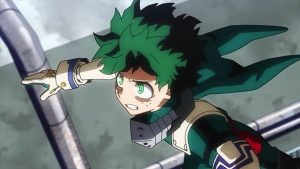 This, too, is unlike those earlier dreams. Deku gets clear and direct advice from a former OFA holder (Yasumoto Hiroki). He explains the situation more clearly than anyone has before – Deku has awakened the man’s quirk “Blackwhip”, because he desired it in battle. One For All is not a static thing, it seems, but a power in constant evolution. The core remains, but it takes on something from each of the users who wield it. There are 8 of them before Deku, which means he has many more awakenings to look forward to. The Blackwhip user makes it very clear – this is a dangerous thing, not to be trifled with. All Deku has to do is channel his anger for power without it becoming destructive. How hard could that be?
This, too, is unlike those earlier dreams. Deku gets clear and direct advice from a former OFA holder (Yasumoto Hiroki). He explains the situation more clearly than anyone has before – Deku has awakened the man’s quirk “Blackwhip”, because he desired it in battle. One For All is not a static thing, it seems, but a power in constant evolution. The core remains, but it takes on something from each of the users who wield it. There are 8 of them before Deku, which means he has many more awakenings to look forward to. The Blackwhip user makes it very clear – this is a dangerous thing, not to be trifled with. All Deku has to do is channel his anger for power without it becoming destructive. How hard could that be?
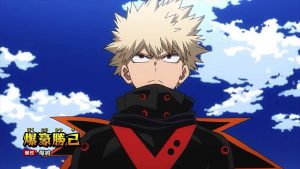 Disaster averted – for now – there’s the matter of the match to consider. And Monoma, for one, is not prepared to let it go. Deku being the boy he is will no doubt be mindful of disrespecting his opponents (especially Shinsu) by abandoning the field. But how can he possibly dare to try using his quirk again, knowing what might happen – and how can he defeat opponents this dangerous without doing so? It’s a different sort of lesson than the one that was intended, but probably a far more essential one in Deku’s journey.
Disaster averted – for now – there’s the matter of the match to consider. And Monoma, for one, is not prepared to let it go. Deku being the boy he is will no doubt be mindful of disrespecting his opponents (especially Shinsu) by abandoning the field. But how can he possibly dare to try using his quirk again, knowing what might happen – and how can he defeat opponents this dangerous without doing so? It’s a different sort of lesson than the one that was intended, but probably a far more essential one in Deku’s journey.


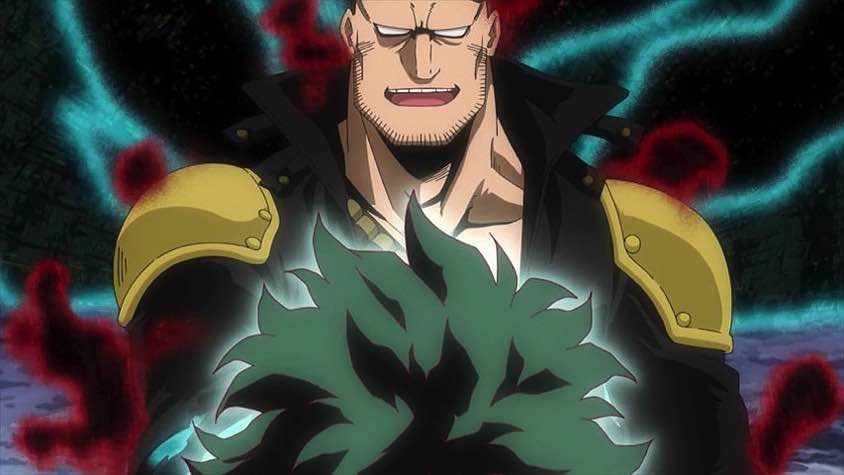
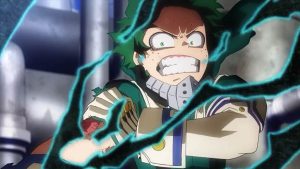
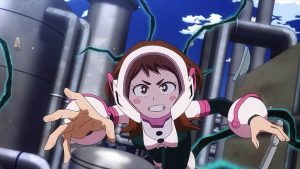
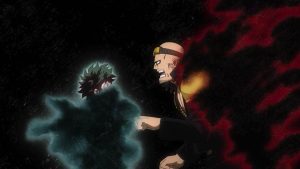
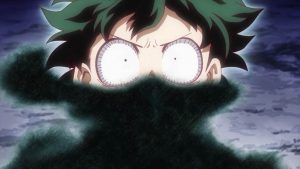
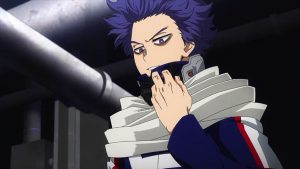
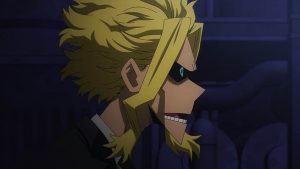
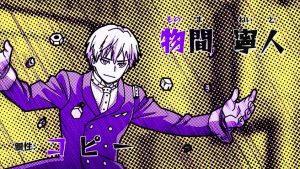
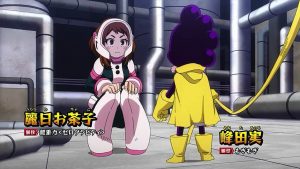
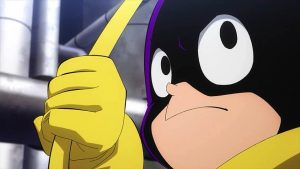
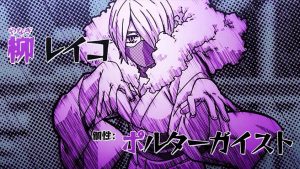
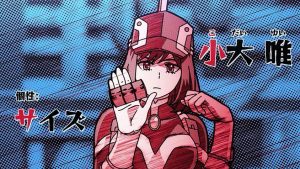
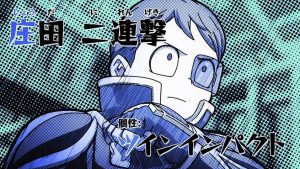
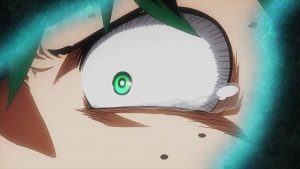
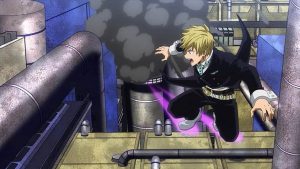
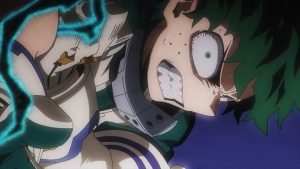
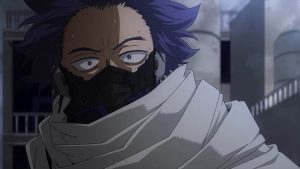
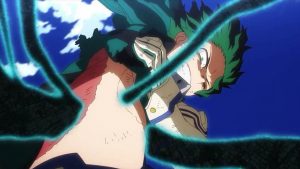
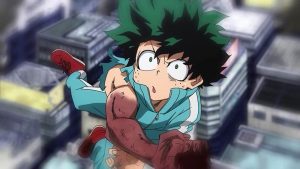
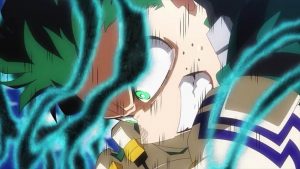
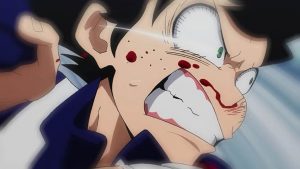
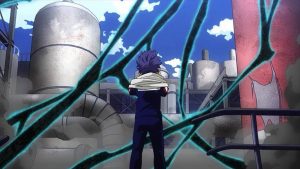
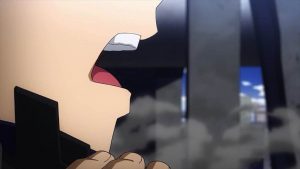
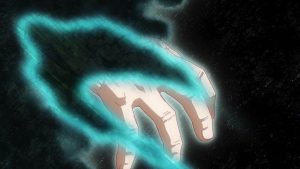
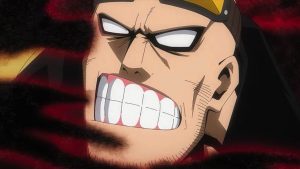
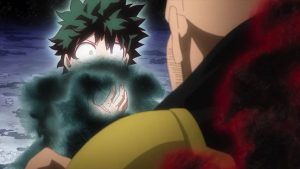
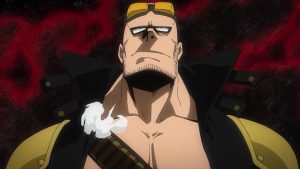
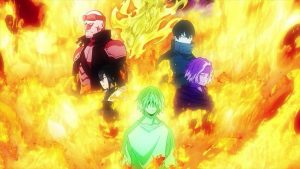
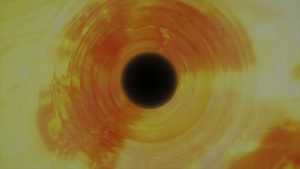
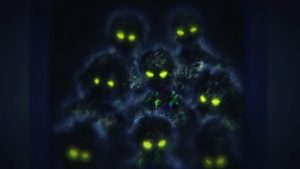
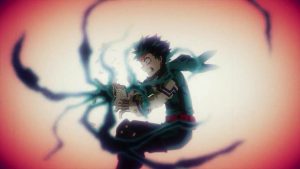
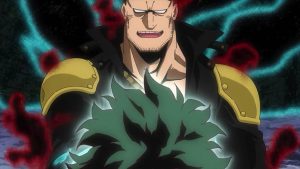
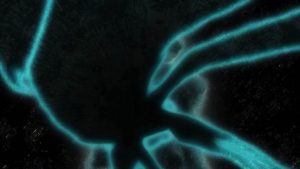
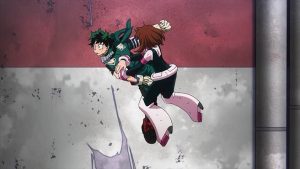
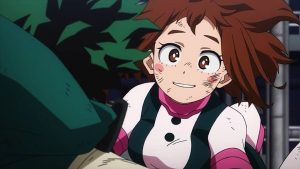
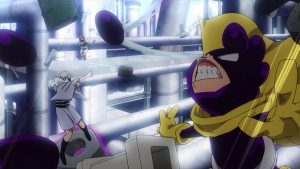
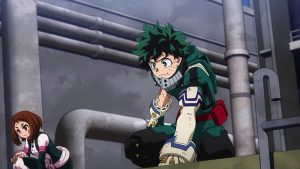
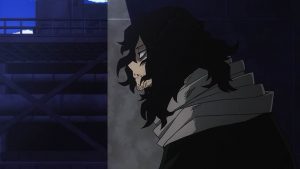
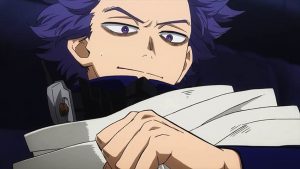
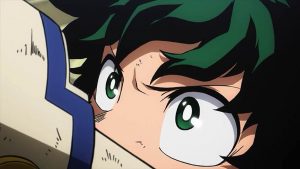
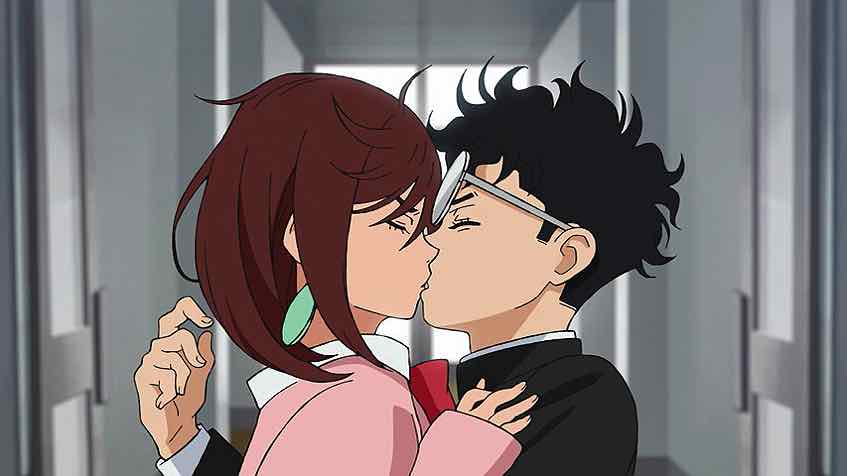
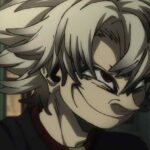
Derrick
May 29, 2021 at 11:41 pma spoilery comment:
(redacted)
Guardian Enzo
May 30, 2021 at 12:02 amLet’s not do that.
Proto
May 30, 2021 at 2:59 amIn the spirit of fans criticizing everything, I’ll criticize you for glossing over Ochaco’s big moment. *shakes fist* But more seriously, it is not this series fault as much as it is the whole genre’s, but there is a severe lack of development time for the female characters in the series so I’ll take whatever morsels we get.
Guardian Enzo
May 30, 2021 at 8:48 amshe alertly seizes on the one way to save the situation – have Shinsu use “Brainwashing” on Deku.
blargnobia
May 30, 2021 at 6:30 amI’m really glad Monoma had that scene where he talks about the similarities between his and Shinsu’s quirks–it showed the tiniest bit of self-awareness on his part. Also, it was cool to see him skillfully using someone’s quirk to surf around on bolts (or whatever they were). I’m all for Hiro focusing on other characters, just as long as they don’t devolve into one-note jokes. (Eg: Monoma screaming “CLASS A SUX” and Kendo punching him.)
Guardian Enzo
May 30, 2021 at 8:50 amAgreed on all fronts. That was quite a good stretch of dialogue, especially where Monoma talked about how the joyful dreams of youth can turn into burdens. Had the ring of something someone destined to be a villain or vigilante might say.
blargnobia
May 30, 2021 at 10:57 amI hadn’t thought of that, but you have a point. Shinsu might be kind of gloomy about his quirk, but Monoma is downright bitter. I always thought Monoma was resentful because Class A was the favored class, but I guess it also has to do with him being insecure about his own quirk and his ability to be a hero.
Guardian Enzo
May 30, 2021 at 2:21 pmI’m convinced Shinsu will be a hero, and an important and high-ranked one at that. I think he’s the most important new character introduced in this long stretch of the manga, and at heart I consider him an idealist.
ibtachi
May 30, 2021 at 1:58 pmNow that’s how you do a lore episode.
The delivery for expanding OFA’s mythos was excellently handled and interwoven into a by-the-numbers training arc, and it’s clear there’s a lot we (All Might too for that matter) don’t know. But just having a slight unravelling of that mystery really kept this episode on my mind long after it finished (a first for this season since the tourney started — which mind you has been perfectly entertaining if a bit lacking in substance).
I do wonder if they’ll touch on why All Might didn’t seem to get similar visions as his master/be able to tap into the other 7 quirks/perfectly mastered base OFA… it almost seems as if most of OFA’s other aspects kind of skipped All Might. I have some working theories regarding why that is but only time will tell I suppose.
Guardian Enzo
May 30, 2021 at 2:23 pmI haven’t made up my mind about that. It may have something to do with OFA adapting to the nature of the holder – Toshinari is a very straight shooter, it seems to me. Has clear cut ideals and is single-minded about pursuing them. Uncomplicated but noble.
Da_j
May 31, 2021 at 5:36 am“she had a dream where a voice told her “The Time Has Come”’
Slight correction, “The time has not yet come”.